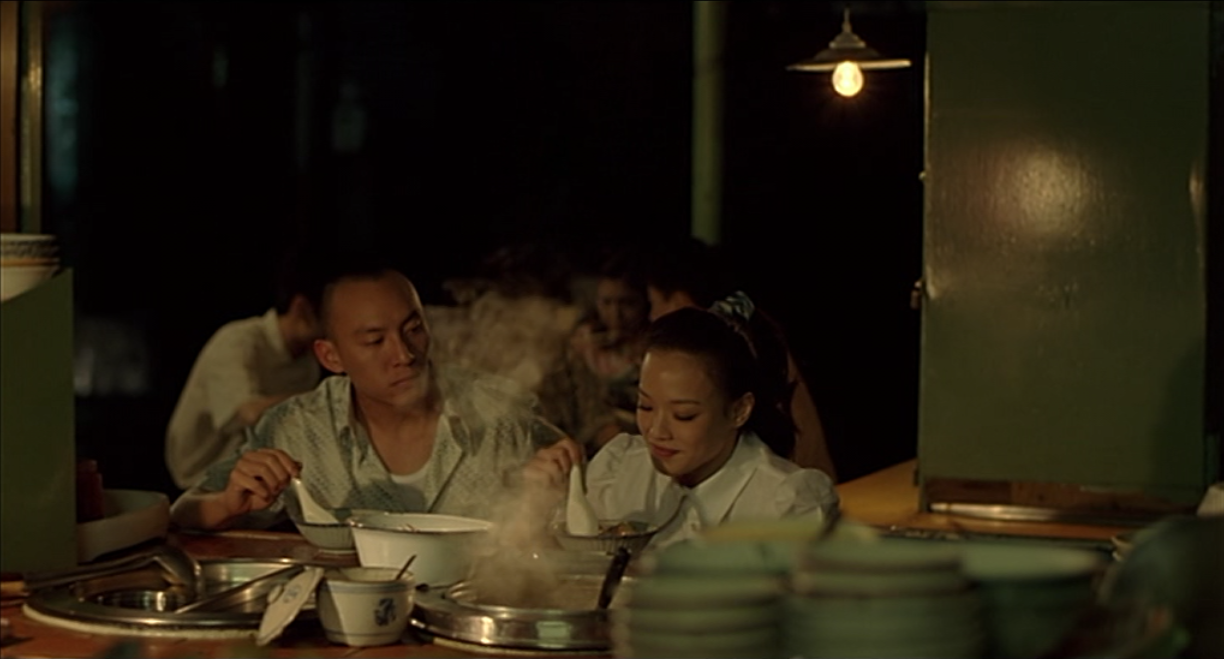Hou Hsiao-hsien Capsule Reviews

Cute Girl (1980) — March 18, 2015
Hou Hsiao-hsien’s first film pairs pop stars Kenny Bee and Feng Fei-fei in a totally pleasant and generic romantic comedy. He’s poor, she’s rich, they fall in love anyway. Tsui Hark’s Working Class is a much better version of this premise, and stars Sam Hui. Kenny Bee is the poor man’s Sam Hui.
Signs this otherwise unremarkable movie is a Hou Hsiao-hsien film:
- An apparently exceptional understanding of the way characters look in space, within their environments and in the film frame. Visual jokes abound, but not pure slapstick (though there is a fair amount of body humor), but rather jokes that only work in a film frame (a false perspective joke about two unrelated people running at each other; the duel on the dune).
- The country as contrasted with the city. Both environments minimize the characters: wide open natural spaces and overcrowded urban streets.
- The book Feng Fei-fei is reading in the film is Moment in Peking, an English-language historical novel by Lin Yutang from 1939 which had been newly translated and released in Taiwan in 1977. It uses its characters to explore Chinese history from the Boxer Rebellion to the present anti-Japanese war. This wikipedia description could easily apply to many (all) of Hou’s later films:
“Lin tries not to be overly judgmental of the characters because he recognizes that too many issues were involved in the chaotic years of the early twentieth century China. There are no absolutely right or wrong characters. Each character held a piece of truth and reality and a piece of irrationality. In the preface, Lin writes that '[This novel] is merely a story of… how certain habits of living and ways of thinking are formed and how, above all, [men and women] adjust themselves to the circumstances in this earthly life where men strive but gods rule.'”
The Time to Live, The Time to Die (1985) — August 20, 2020
The last fifteen minutes or so of this just wreck me every single time.
How weird is it that Tien Feng plays Hou’s dad? Lee Khan himself. Just one year before he played Leslie Cheung’s dad in A Better Tomorrow.
Added March 3, 2021:
In thinking about your question,[1] I keep coming back to Hou Hsiao-hsien’s The Time to Live, The Time to Die, his 1985 film about his own youth growing up as a transplant from the Mainland in rural Taiwan. Being autobiographical, it’s also a film about looking back at one’s own life, at all the mistakes and failures and missed opportunities and regrets. Hou films everything at a distance, both literally and emotionally, the better to see everything with as much context and clarity as possible. He can’t change the past, but at least he look at it fairly and without judgement. It’s a lesson this year as only reinforced for me: like the past, so much in our world is out of our control. We do the best we can and hope to see more clearly in the future.
Written in response to a survey by critic Glenn Heath for his newsletter, asking about films about “memory and looking back” and “why these films have made an impact on you over time. . . and how they might have helped you emotionally/mentally through this past hellish year.” ↩︎
Dust in the Wind (1986) — August 20, 2020
“The potatoes are more difficult to look after than ginseng.”
Three Times (2005) — March 8, 2015
One couple. In three different time periods they can’t talk. The couple communicates, of course, through letters, through songs and through gestures, but at no time do they actually say what they mean. In fact, the version of the couple that talks the most talks only about tangential things (another couple, the coming revolution) and their words have no sound — the only sounds in their universe are the songs, always diegetic, but through the magic of Hou’s overlapping sound designs, binding together discrete spaces and clinically-pronounced times. Chang Chen’s man is essentially the same performance in all three periods, but Shu Qi changes dramatically: bubbly and sly in the 60s, morose and damaged and oh so cool in the present, and bearing all the dramatic weight of the tragedy of 1911 with her eyes and her shoulders.
